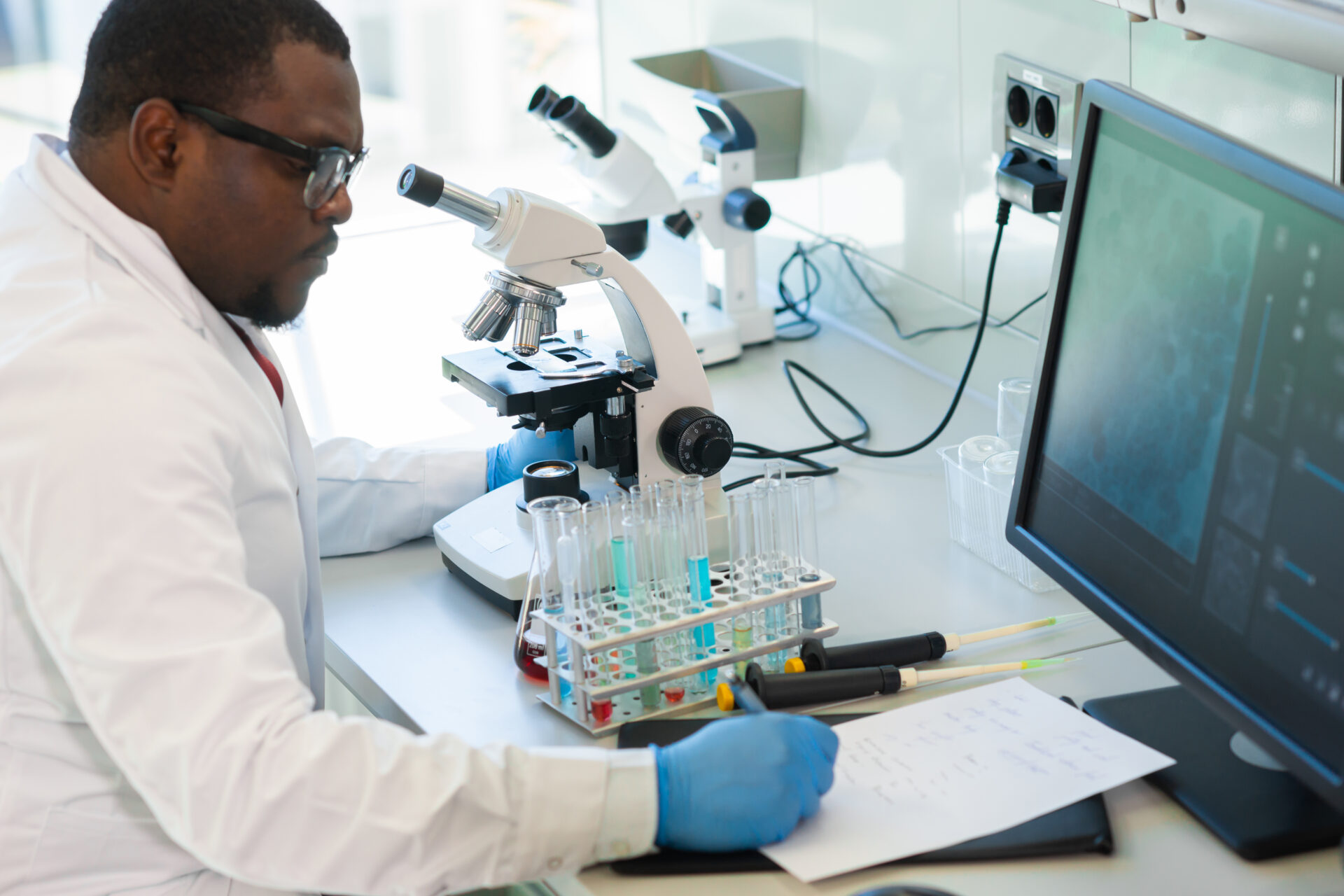Project Description
Immunology is the study of the immune system which protects us from infection through various lines of defence. Immunology tests can aid doctors in a variety of diagnoses and treatment monitoring such as in autoimmunity, allergy and cancer. Endocrinology is the study of the endocrine system. The Endocrine system consists of glands which secrete hormones to induce a bodily response.
This department performs tests by radioimmunoassay (RIA) and ELISA. All RIA and ELISA tests are fully automated. Quality controls and checks are run and recorded before each test procedure is used for testing patient samples ensure that the most accurate and precise results are produced.
Patients can receive results within two working days for commonly requested tests.
Some of the test available are:
Antinuclear Antibodies (ANA IgG), is used in the diagnosis of autoimmune disease.
Antithyroglobulin antibody testing is used in the evaluation for thyroid problems.
The presence of anti-thyroid peroxidase (also called anti-TPO) in blood suggests that the cause of thyroid disease is an autoimmune disorder.
This test is used in the diagnosis of lupus (Systemic Lupus Erythematosus, SLE)
C-peptide is used to help doctors differentiate between type 1 and type 2 diabetes.
Tumor marker – Ovarian
Tumor marker – Breast
Tumor marker – Stomach, Pancreas, Colon
Tumor marker -The CEA blood levels are often increased in colorectal cancer and may be increased in other cancers including breast, lung, pancreatic, stomach, liver and ovarian cancer.
This test is used to detect an infection of Chlamydia trachomatis
This test is used to detect an infection of Chlamydia trachomatis
This test is used to detect cytomegalovirus (CMV), a virus in the herpes family.
This test is used to detect to cytomegalovirus (CMV), a virus in the herpes family.
This test is used to detect an infection of dengue.
Dehydroepiandrosterone (DHEA) is a hormone produced by both men and women. It’s released by the adrenal glands, and it contributes to male traits.
This test detects antibodies to Epstein-Barr virus (EBV) which causes mononucleosis. EBV is also called “mono” and “kissing disease”.
This test detects antibodies to Epstein-Barr virus (EBV) which causes mononucleosis. EBV is also called “mono” and “kissing disease”.
Doctors may use estrogen tests to help check on concerns with puberty, fertility, menopause, and other conditions.
A ferritin test helps your doctor determine how much iron your body is storing.
This test can be used to detect folic acid deficiency.
Free triiodothyronine, Free T3 or FT3, is used in the diagnosis and treatment of thyroid disease.
Free Thyroxine, Free T4 or FT4 is used in the diagnosis and treatment of thyroid disease
FSH, Follicle stimulating hormone blood test that is most commonly used to assess infertility problems and irregular menstrual cycles. It is also commonly used to diagnose disorders of the pituitary gland or diseases involving the ovaries.
Helicobacter pylori also called H. pylori, is a type of bacteria that is known to be a major cause of peptic ulcers. H. pylori testing detects an infection of the digestive tract caused by the bacteria to help diagnose the cause of symptoms and/or ulcers.
The Hepatitis A virus is one of several types of hepatitis viruses that cause inflammation and affect your liver’s ability to function.
This test is used to determine if a person is protected against the hepatitis B virus as a result of receiving the hepatitis B vaccine or successfully recovering from a past hepatitis B infection.
The test is used to find out whether you have a recent or long-standing infection from the hepatitis B virus (HBV).
This test is used to determine if a person is infected with the Hepatitis C virus, a disease that causes inflammation and infection of the liver.
Used in the diagnosis of a patient being infected with Herpes Simplex Virus-1. The vast majority of HSV-1 infections are oral herpes (in or around the mouth), but a proportion of HSV-1 infections are genital herpes (infections in the genital or anal area).
Used in the diagnosis of a patient being infected with Herpes Simplex Virus-1. The vast majority of HSV-1 infections are oral herpes (in or around the mouth), but a proportion of HSV-1 infections are genital herpes (infections in the genital or anal area).
Used in the diagnosis of a patient being infected with Herpes Simplex Virus-2. HSV-2 is the main cause of genital herpes, which can also be caused by herpes simplex virus type 1 (HSV-1).
Used in the diagnosis of a patient being infected with Herpes Simplex Virus-2. HSV-2 is the main cause of genital herpes, which can also be caused by herpes simplex virus type 1 (HSV-1).
This test is used in the detection of HIV infection. It tests for both HIV 1 and 2.
This rapid screen for HIV provides qualitative (negative/positive) results in 20 minutes. It tests for both HIV 1 and 2.
IgE antibodies are normally found in small amounts in the blood, but higher amounts can be a sign that the body overreacts to allergens. IgE levels can also be high when the body is fighting off an infection from a parasite or with some immune system conditions.
Parathyroid hormone (PTH) helps the body maintain stable levels of calcium in the blood. This test is used to determine the cause of calcium imbalances, evaluate parathyroid function, diagnose and differentiate between primary, secondary, and tertiary hyperparathyroidism and to diagnose hypoparathyroidism
Beta-HCG is a blood test used to diagnose and monitor pregnancy. It is also used as a tumor marker. Results of this test are quantitative.
This is a rapid urine test used to detect pregnancy. Results of this test are qualitative (negative/positive).
This test is used to diagnose and manage fertility problems.
This test is used to investigate a variety of problems such as galactorrhea, absent menstruation and fertility problems.
Elevated PSA readings may indicate prostate cancer or benign conditions such as an inflamed prostate or an enlarged prostate
IgG stays in your bloodstream for life. It means you had either the illness or the vaccine in the past and are now immune to the virus. You’re likely to have this test when you need to know that you can’t get sick with rubella.
This test is used to determine if a person is infected with the Rubella virus.
Sex Hormone Binding Globulin, also called SHBG is used to investigate a variety of conditions such as hyperthyroidism, hypogonadism and androgen insensitivity.
This test is used in the diagnosis of lupus (systemic lupus erythematosus, SLE).
A blood test used to determine if a patient has syphilis, a disease caused by the bacterium Treponema pallidum.
A rapid blood test used to determine if a patient has syphilis, a disease caused by the bacterium Treponema pallidum. Results of this test are qualitative (Negative / positive).
Triiodothyronine, also called T3, is used in the diagnosis and treatment of thyroid disease.
T3-uptake also called T-UP, TU and T3 Uptake, is used in the treatment and diagnosis of thyroid disease.
Thyroxine, also called T4, is used in the treatment and diagnosis of thyroid disease
A testosterone level test measures the amount of testosterone in the blood. Testosterone is an androgen, or a sex hormone, produced by both males and females. It plays a role in puberty and fertility.
Thyroglobulin (Tg) is produced predominantly by the thyroid gland. It acts as a substrate in the production of T4 and T3. It is a non-specific indicator of a thyroid dysfunction and a tumor marker that can be used to monitor patients who have been diagnosed with thyroid cancer.
This test is used to detect an infection with the Toxoplasma gondii parasite.
This test is used to detect an infection with the Toxoplasma gondii parasite.
Thyroid stimulating hormone (TSH), is used in the diagnosis and treatment of thyroid disease.
This is a blood test used to diagnose tuberculosis infection in patients.
A beta-2 microglobulin tumor marker test is most often given to people who have been diagnosed with certain cancers of the bone marrow or blood.
Antinuclear Antibodies (ANA IgG), is used in the diagnosis of autoimmune disease.
Other Services
OPENING HOURS
| Monday – Friday | 7:30 – 5:00 |
| Saturday | 8:00 – 1:00 |



